Filter by
# Debug Box
/var/www/htdocs/pustaka-digital/lib/SearchEngine/SearchBiblioEngine.php:688 "Search Engine Debug 🔎 🪲"
Engine Type ⚙️: "SLiMS\SearchEngine\SearchBiblioEngine"
SQL ⚙️: array:2 [ "count" => "select count(sb.biblio_id) from search_biblio as sb where sb.opac_hide=0 and ((match (sb.topic) against (:subject in boolean mode)))" "query" => "select sb.biblio_id, sb.title, sb.author, sb.topic, sb.image, sb.isbn_issn, sb.publisher, sb.publish_place, sb.publish_year, sb.labels, sb.input_date, sb.edition, sb.collation, sb.series_title, sb.call_number from search_biblio as sb where sb.opac_hide=0 and ((match (sb.topic) against (:subject in boolean mode))) order by sb.last_update desc limit 10 offset 30" ]
Bind Value ⚒️: array:1 [ ":subject" => "'+\"United States\"'" ]

The Jewish unions in America : pages of history and memories
Newly arrived in New York in 1882 from Tsarist Russia, the sixteen-year-old Bernard Weinstein discovered an America in which unionism, socialism, and anarchism were very much in the air. He found a home in the tenements of New York and for the next fifty years he devoted his life to the struggles of fellow Jewish workers. The Jewish Unions in America blends memoir and history to chronicle th…
- Edition
- -
- ISBN/ISSN
- 9781783743551
- Collation
- 322 p. ; ill
- Series Title
- -
- Call Number
- 331.880973 WEI t
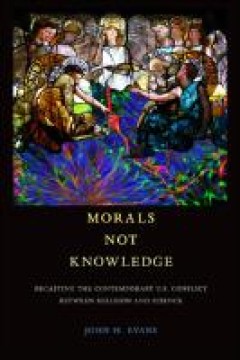
Morals not knowledge : recasting the contemporary U.S. conflict between relig…
In a time when conservative politicians challenge the irrefutability of scientific findings such as climate change, it is more important than ever to understand the conflict at the heart of the “religion vs. science” debates unfolding in the public sphere. In this groundbreaking work, John H. Evans reveals that, with a few limited exceptions, even the most conservative religious Americans a…
- Edition
- -
- ISBN/ISSN
- 9780520969780
- Collation
- vii, 240 p. : ill.
- Series Title
- -
- Call Number
- 645101.0 EVA m
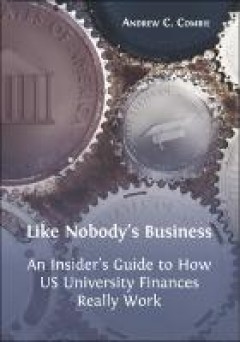
Like nobody's business: an insider's guide to how US University finances rea…
"How do university finances really work? From flagship public research universities to small, private liberal arts colleges, there are few aspects of these institutions associated with more confusion, myths or lack of understanding than how they fund themselves and function in the business of higher education. Using simple, approachable explanations supported by clear illustrations, this book t…
- Edition
- -
- ISBN/ISSN
- 9781800641099
- Collation
- xi, 471 pages (1 online resource) : charts (color)
- Series Title
- -
- Call Number
- 378.38 COM l

Unequal family lives : causes and consequences in Europe and the Americas
Across the Americas and Europe, the family has changed and marriage is in retreat. To answer the question of what's driving these changes and how they impact social and economic inequality, progressives have typically focused on the economic causes of changing family structures, whereas conservatives tend to stress cultural and policy roots. In this illuminating book, an international group of …
- Edition
- -
- ISBN/ISSN
- 9781108235525
- Collation
- xix, 327p. : ill.
- Series Title
- -
- Call Number
- 306.850973 UNE u
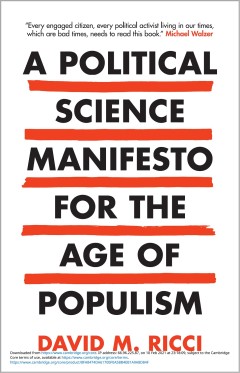
A political science manifesto for the age of populism : challenging growth, m…
Populism and authoritarian-populist parties have surged in the 21st century. In the United States, Donald Trump appears to have become the poster president for the surge. David M. Ricci, in this call to arms, thinks Trump is symptomatic of the changes that have caused a crisis among Americans - namely, mass economic and creative destruction: automation, outsourcing, deindustrialization, globali…
- Edition
- -
- ISBN/ISSN
- 9781108785440
- Collation
- x, 245p. : ill.
- Series Title
- -
- Call Number
- 320.473 RIC p

The disinformation age : politics, technology, and disruptive communication i…
The intentional spread of falsehoods – and attendant attacks on minorities, press freedoms, and the rule of law – challenge the basic norms and values upon which institutional legitimacy and political stability depend. How did we get here? The Disinformation Age assembles a remarkable group of historians, political scientists, and communication scholars to examine the historical and politic…
- Edition
- -
- ISBN/ISSN
- 9781108914628
- Collation
- xxvii, 293p. : ill.
- Series Title
- -
- Call Number
- 320.973014 DIS d
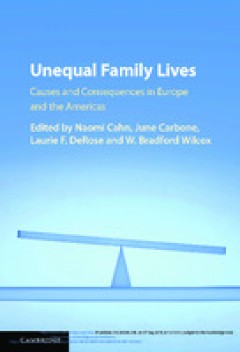
Unequal family lives: causes and consequences in Europe and the Americas
Across the Americas and Europe, the family has changed and marriage is in retreat. To answer the question of what's driving these changes and how they impact social and economic inequality, progressives have typically focused on the economic causes of changing family structures, whereas conservatives tend to stress cultural and policy roots. In this illuminating book, an international group of …
- Edition
- -
- ISBN/ISSN
- 9781108415958
- Collation
- xix, 327 pages : illustrations, maps ; 24 cm
- Series Title
- -
- Call Number
- 306.850973 CAH u

The dynamics of opportunity in America : evidence and perspectives
Across the country, our children are beginning life from very different starting points. Some have aspirations and believe they can be achieved. For too many others, aspirations are tempered, if not dashed, by the sobering realities of everyday life. These different starting points place children on distinctly different trajectories of growth and development, ultimately leading to vastly differ…
- Edition
- -
- ISBN/ISSN
- 9783319259918
- Collation
- -
- Series Title
- -
- Call Number
- 379 DYN d

Going public : what writing programs learn from engagement
An important new resource for WPA preparation courses. In Going Public, Rose and Weiser moderate a discussion of the role of the writing program vis-a-vis the engagement movement, the service learning movement, and the current interest in public discourse/civic rhetoric among scholars of rhetoric and composition. While there have been a number of publications describing service-learning and com…
- Edition
- -
- ISBN/ISSN
- 9780874217698
- Collation
- II, 259 p.
- Series Title
- -
- Call Number
- 428.00712 ROS g
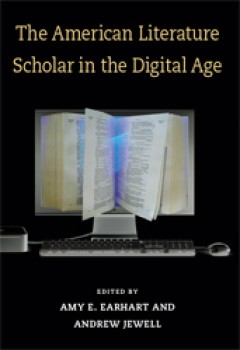
The American literature scholar in the digital age
The American Literature Scholar in the Digital Age, which features a wide range of practitioner-scholars, is the first of its kind: a gathering of people who are expert in American literary studies and in digital technologies, scholars uniquely able to draw from experience with building digital resources and to provide theoretical commentary on how the transformation to new technologies alters …
- Edition
- -
- ISBN/ISSN
- 9780472071197
- Collation
- -
- Series Title
- -
- Call Number
- 800 AME a
 Computer Science, Information & General Works
Computer Science, Information & General Works  Philosophy & Psychology
Philosophy & Psychology  Religion
Religion  Social Sciences
Social Sciences  Language
Language  Pure Science
Pure Science  Applied Sciences
Applied Sciences  Art & Recreation
Art & Recreation  Literature
Literature  History & Geography
History & Geography